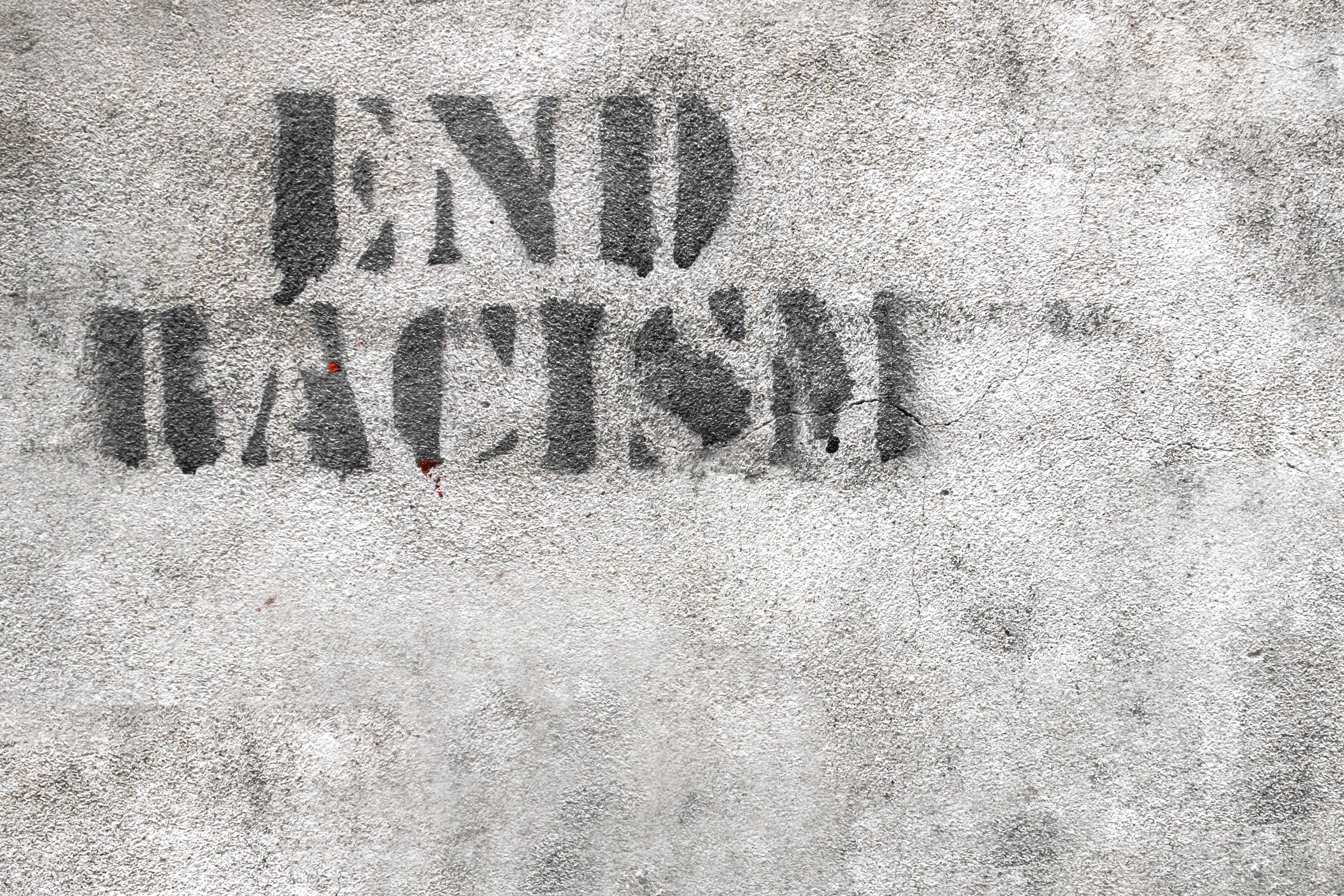Dear Neag School Students,
We are reaching out to share resources that we believe might be helpful as you reflect on the current and ongoing racism in our country. We hope that these resources will help you reflect on and process the current moment, but also, help shape your practices as anti-racist teachers. Of course, this list is not exhaustive, as there are so many dynamics, so many theories, so many histories to grasp in order to do our work of understanding anti-racism and pursing our role as anti-racist educators. We hope it will, though, provide a place for you to start or some new directions to go. Please feel free to reach out to your faculty as you digest and process some of these pieces. As you find useful resources, also please continue to share and learn together.
Re: #BlackLivesMatter
- Black Lives Matter Homepage
- Why You Need to Stop Saying “All Lives Matter”
- The Movement for Black Lives Week of Action (June 1-7, 2020)
- The Paradox of Black Lives Matter
- Breonna Taylor: a Conversation with Tamika Mallory and Taylor Family Attorney Lonita Baker
- Dr. Kimberle Crenshaw’s INTERSECTIONALITY TedTalk
- An Interview with the Founders of Black Lives Matter Ted Talk
Re: Our Roles
- Mapping Our Social Change Roles in Times of Crisis and My Role in a Social Change Ecosystem
- 21 Day Racial Equity Challenge and 21-Day Racial Equity Challenge Log
- Scaffolded Anti-Racist Resources
- BLM Elementary Library
- 20+ Allyship Actions for Asians to Show Up for the Black Community Right Now
- 5 Ways to Show Up for Racial Justice Today
- What if…..White People Took Responsibility for Our Role in this Moment? and Anti-Racism Resources for White People
- Support Black-Owned Businesses and Political Candidates of Color
- Donate to National Bail Out, to funds by state/city here and here.
- Get your books online through Black-owned bookstores
- Text ‘ActionNOW’ to 90975 to get action alerts from The Movement For Black Lives, and text ‘FLOYD’ to 55156 to join Color of Change in demanding justice for George Floyd
- Letters for Black Lives
- TO ALL NON-BLACK LATINX: DISTRACTING PEOPLE FROM BLM IS ANTI-BLACK VIOLENCE
- Why Black Lives Matter to Me As a Filipina and 4 Reasons Why Filipinas/os Should Support Black Lives Matter
- South Asians and Black Lives and South Asians in the U.S. must support #BlackLivesMatter, But First Undo Your Own Anti-Blackness
- Microaggression and Racial Battle Fatigue — William Smith
- White Fragility — Robin DiAngelo
- Allyship and Accountability Glossary — Levana Saxon
- N. Kristof’s New York Times Series, “When Whites Don’t Get It”
- Summary of Stages of Racial Identity Development
Re: Black Lives Matter Protests/Rebellions in Relationship to the Historical and Contemporary Contexts
- A Timeline of Events That Led to the 2020 ‘Fed Up’-rising
- The 1619 Project — Black History Resource from the New York Times
- The Focus on Looting Shows How Our Systems of Power Value Capital Over Human Lives
- When Exactly Do Protests Become Riots? and What Martin Luther King Jr. Really Thought About Riots
- Of Course There Are Protests. The State Is Failing Black People.
- Tulsa Race Massacre: For years it was called a riot. Not anymore. Here’s how it changed. and 99 years ago, one of America’s worst acts of racial violence took place in Tulsa
- Black Trans Lives Matter, The Pride Movement, and The Stonewall Riots and Pay It No Mind: The Life and Times of Marsha P Johnson
- The Disproportionate Death of Black Americans due to Covid-19: Reflecting Systemic Racism in Access to Health Care and Urban Amenities
- Roxane Gay’s OpEd — Remember, No One is Coming To Save Us
Re: Racialized Trauma
(from “Irresistible Podcast,” formerly “Healing Justice” Podcast):
1. Black-led conversations and practices for healing from racialized trauma:
— Blackness & Belonging conversation and Reflection on Belonging practice from Prentis Hemphill, for healing from the traumas of anti-Black racism
— Rest as Reparations conversation and The Perfect Nap practice from The Nap Ministry, for restoration & ancestral healing through rest
2. If you’re in the midst of direct action right now:
— Healing in Direct Action practice from Black Lives Matter Global Network / Black Visions Collective, for harm reduction and increased connection during rapid response
— Compartmentalizing in a Healthy Way practice from BYP100, for boundaries and protecting our mental health when things are moving fast
3. For showing up in solidarity:
— The Art of Allyship: Coming Alongside with Jacoby Ballard and Intention & Impact: Showing Up Right-Sized with Teo Drake, for discerning how to best show up in solidarity
— Ancestral Connection for Anti-Racist White Folks with Jardana Peacock and Kelly Germaine, for white folks doing deeper work to show up meaningfully for anti-racism
Re: Educators/Pre-Service Teachers/Parents Resources:
- There Is No Apolitical Classroom: Resources for Teaching in These Times (National Council of Teachers of English)
- BLACK LIVES MATTER AT SCHOOL: FROM THE WEEK OF ACTION TO YEAR-ROUND ANTI-RACIST PEDAGOGY AND PROTEST (Rethinking Schools)
- Black Lives Matter at School
- Black Lives Matter in the Classroom (Teaching Tolerance)
- Woke Kindergarten (YouTube channel)
- Dear White Teachers: You Can’t Love your Black Students if You Don’t Know Them (Bettina Love)
- Teaching for Black Lives — Rethinking Schools
- 26 Mini-Films for Exploring Race, Bias, and Identity with Students, New York Times
Some alternative media outlets and race-oriented podcasts to follow:
- Democracy Now
- 1619
- 94.1 KPFA
- Code Switch
- Intersectionality Matters with Kimberlé Crenshaw
- Still Processing
- In These Times
- Irresistible (formerly Healing Justice) Podcast
- The Lit Review Podcast
Some national organizations and movements to follow:
- Black Lives Matter and BYP100
- Black Visions Collective
- The Audre Lorde Project
- National Bail Out and The Bail Project
- Bay Resistance and Causa Justa/Just Cause
- Showing Up For Racial Justice
- Mijente (Hacia Compañerismo y Conciencia: Pro-Blackness in Action)
- National Freedom of Information Coalition (accessing data about police misconduct)
- Color of Change
- Southern Poverty Law Center
Media That Helps Us Understand Race, Racism, and Social Justice Movements in the United States
- Dream Hampton’s Film “Treasure: From Tragedy to TransJustice, Mapping a Detroit Story”
- Film documenting the battle in Tucson for Ethnic Studies Program: “Precious Knowledge”
- New York Times short films: “A Conversation on Race”
- “Race: The Power of an Illusion” (movie); see also lesson plans and resources
Books That Help Us Understand Race, Racism, and Social Justice Movements in the United States
- When Affirmative Action was White — Ira Katznelson
- The Origins of the Urban Crisis — Thomas Sugrue
- Living for Change and The Next American Revolution — Grace Lee Boggs
- The Warmth of Other Suns — Isabel Wilkerson
- Their Highest Potential — Vanessa Siddle Walker
- The Detroit School Busing Case: Milliken V. Bradley and the Controversy Over Desegregation — Joyce Baugh
- Sister Outsider — Audre Lorde
- How to be An Anti-Racist — Ibram X. Kendi
- 10 Books About Race — as suggested by Bustle Magazine
Movies and Shows to Stream
- 13th (Netflix)
- American Son (Netflix)
- Dear White People (Netflix)
- Homecoming (Netflix)
- I Am Not Your Negro (Amazon Prime)
- If Beale St Could Talk (Hulu)
- King in the Wilderness (HBO)
- LA 92 (Netflix)
- See You Yesterday (Netflix)
- The Hate You Give (Cinemax)
- True Justice (HBO)
- When They See Us (Netflix)
Books About Teaching For Black Lives
- Culturally Sustaining Pedagogies — Django Paris & Samy Alim
- Teaching for Black Lives — Edited by Dyan Watson, Jesse Hagopian, and Wayne Au
- Cultivating Genius — Gholdy Muhammad
- Linguistic Justice: Black Language, Literacy, Identity and Pedagogy — April Baker-Bell
- Rethinking Ethnic Studies — Edited By R. Tolteka Cuauhtin, Miguel Zavala, Christine Sleeter, Wayne Au
- Rethinking Multicultural Education — edited by Wayne Au
- We Want to Do More Than Survive — Bettina Love
- Black Appetite, White Food — Jamila Lyiscott
- Pushout — Monique Morris
- We Got This — Corneilus Minor
- For White Folks Who Teach in the Hood and the Rest of Y’all, Too: Reality Pedagogy & Urban Education — Chris Emdin
Of course, as you read any of these resources or any other text analyzing this moment or any issues of race, justice, and education, make sure to approach them with a critical eye. Whose story is being told? By whom? Through what lenses? How are arguments upholding or pushing against the status quo? For what reason and how? Does this resource center Black voices and perspectives? Does this resource value marginalized positions necessary in social justice movement?
Also, continue to engage and broaden your own understandings. Keep a log of your developing questions. Consider how and where you’ll continue to seek information to pursue learning about these questions. Develop groups of critical friends to help push you forward in your understandings and critiques. Make sure to honor and respect (and compensate in one way or another) the emotional and intellectual labor of any Black person or Person of Color who contributes to your continual understandings. Understand that discomfort is part of anti-racist work and continue to push forward. Students of Color, and particularly Black students, take care of yourselves and your communities.
We would like to thank Drs. Alicia Rusoja, Manisha Anantharaman, Monica Fitzgerald, Suzanne Schmidt, Tamara Spencer, and Michael Joseph Viola of St. Mary’s College of California for inspiring this list, providing the basis for the list, and collaborating to gather additional resources.
With love and power,



